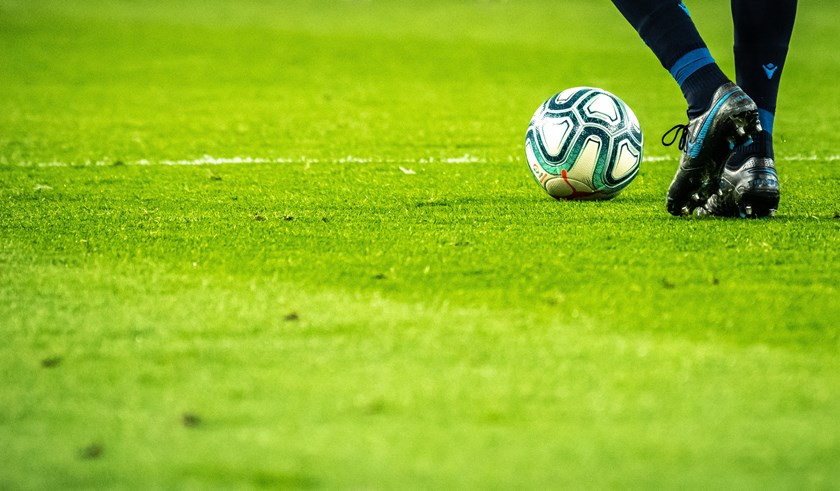Inn the Field of Play - January 2016: IAAF - Will sponsorship survive the scandal?
News

Yesterday’s news that Adidas are pulling its sponsorship of the IAAF is a significant blow to the IAAF, especially when you think that Adidas has not – as yet at least – cancelled its agreement with FIFA. Owen O’Rorke examines the basis for a sponsor’s right to terminate, its consequences and the spectre of contagion.
As with FIFA and football, 2015 was a difficult year for track and field; 2016 has already started with the hangover everyone in the sport feared. News broke over the weekend that Adidas, the IAAF's biggest sponsor in dollar terms, had not merely declined to renew its contract term in 2019 but would in fact be seeking to terminate the deal with immediate effect – three years early, and in an Olympic year.
Neither party has expressly confirmed this, perhaps in acknowledgment that this will not be legally straightforward. Whether Adidas have the clear right to terminate will likely depend on what warranties were negotiated, including to protect their reputation against the negative consequences of alleged acts or omissions of the IAAF. But what is clear is that even if a settlement sum is reached, Adidas are prepared to risk cutting their losses – and the IAAF is sure to lose out financially.
How much is still a matter of debate. In 2008, when the deal was announced, reports suggested it was worth $3m a year over 11 years for a deal which covered "every aspect of athletics", from its grassroots to the global product. However, when the ancillary benefits such as retail are factored in, analysts believe this would more than double the contract price: some are projecting a hole in the IAAF's revenues worth more than $30m over the next 4 years. What is more, this does not account for the so-called contagion effect – that once one sponsor blinks, a clutch of other partners and investors are quickly likely to follow, potentially affecting numerous commercial deals with third parties.
How did it come to this? The blood doping results leak has blown the lid off the lingering suspicion of foul play within some parts of the sport, to the extent a national governing body like UKA was recently moved to suggest that the clock on all individual records should be re-set. However, Adidas remain wedded to football and FIFA in particular, despite its own integrity scandals (refusing to join calls for Sepp Blatter to step down in October last year). So the question remains: by picking and choosing when to take the moral high ground, is Adidas passing judgment on the sport of athletics as a whole?
One telling statistic is that, according to the IAAF's own website, the average age of a track fan is 55 years old – something its president Lord Coe agrees is not sustainable. While the spending power of this demographic is attractive to many sponsors, it does not remotely square with the target market of Adidas and other sporting goods or clothing manufacturers.
The IAAF had already suffered a sponsorship blow in 2013 when Samsung, surprisingly to some after the exposure it had enjoyed in London 2012, chose not to renew its deal as title sponsor of the IAAF's Diamond League for the following season. The wide fanfare for the London Olympics suggested that public enthusiasm for big cultural events had to date been, if not immune, then at least bold enough to resist any growing cynicism. But while organisers of Rio 2016 hardly found a problem getting sponsors on the back of 2012 – the usual suspects like Coca-Cola, McDonald's, Visa and (yes) Samsung are all still on board – there is real concern it might feel the backlash in terms of public engagement. It could be Tokyo 2020 which suffers if track and field athletics, historically the Games' showpiece, does not turn a corner fast.
The carve-up of rights ownership in athletics is a typically complex one – not only the interaction between the IAAF and the IOC, but also between those organisations and the national Olympic associations, domestic governing bodies and the individual clubs or competitions. Amongst Samsung's issues as a global title sponsor was competing rights: generally, its benefits would be trumped by those of local sponsors already "in possession" on the ground. However, a scandal which hits at the very top – even if only in public perception – has an effect felt across the entire sport.
Loss of trust not only impacts on the marquee events of global participation – events on which the rest of the sport relies for drip-down, in terms of both revenue and profile (benefits seen in increased crowds, participation and government support). Above all, it threatens to strangle the grass roots: the smaller meetings and clubs, not to mention athletes, already struggling to gain the level of funding and exposure which their sport desperately needs to justify the sacrifices involved.
So what are the lessons here? For commercial partners, it is about obtaining contractual controls to protect the brand. Favour and fashion changes with the seasons, which is why – for all the benefits of building long-term strategic partnerships – the canniest sponsors will look to give themselves regular rights to renew, or review, key commercial arrangements. It is easier to rely on regular termly options, thus avoiding legal headaches over relatively subjective termination "triggers" concerning reputational damage (actual or likely).
For rights holders, longer term deals shore up the financial future of the sport – as long as they are with the right partner (and the 11-year deal with Adidas is a case in point). In 2014 outgoing IAAF President Lamine Diack claimed a legacy victory by extending the existing deal with long-term commercial partner Dentsu Inc. for a further 10 years (until 2029), announcing: "As I prepare to step down as president in 2015, I am proud to leave a secure legacy to my successor which ensures that athletics is ready to meet the worldwide challenges of a fast changing sport and leisure culture." Of course, history may hold another view.
As the IAAF focuses all talk on a "reform process", could this time of transition not be an exciting opportunity in athletics for the right sponsor; or does it denote a tarnished product to be avoided by brands for a generation? Unlike with the famous example of Kate Moss, whose alleged drugs scandal succeeded in attracting as many new contracts as she lost, there is little value to notoriety in sporting brands: its market appeal lies in qualities like fairness, physical health, and providing role models for the young. The tragedy for the sport is that attractiveness of the opportunity for any new sponsor will most likely be measured in a heavy deflation of value of the underlying rights.
Sponsors can always find commercial opportunities elsewhere, but Lord Coe's legacy – even his own hard-won reputation in the sport – is suddenly dependent on achieving a single goal. Failure would mean facing commercial extinction. Sad to say, but with the age of amateurs in which the IAAF was founded fast vanishing, for any major sport a viable future is inextricable from market value. Athletics has no alternative but to present a clean, credible and sellable product that sponsors can get behind. The IAAF's new president is now entrusted with nothing less than saving a generation of athletes who may be lost to sport.
If you require further information on anything covered in this briefing please contact Owen O'Rorke (owen.o'[email protected]; 020 3375 7348) or your usual contact at the firm on 020 3375 7000.
This publication is a general summary of the law. It should not replace legal advice tailored to your specific circumstances.
© Farrer & Co LLP, January 2016







